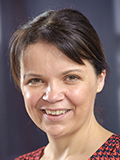- Prospective Applicants
-
Current PhD Researchers
- Careers and Opportunities
- Careers
- Go Global
- Science Shop
-
Supervisors
- Find a PhD
- PhD Manager
The average life expectancy has been increasing significantly during the 20th century therefore there is a larger number of elderly people living in our communities. In Ireland, for example, 12% of the entire population are people over the age of 50 living in rural areas. With increasing age comes additional challenges and risks related to physical activity such as frailty and risk of falls. Qualitative and quantitative measures of physical activity can be used to assess risk and indicate the presence of conditions. For example, measures of physical function can be used as an indicator of frailty while measures relating to gait can be used to assess falls risk. Questionnaires can be used as a measurement tool, however these are highly subjective and are therefore limited in terms of accuracy. Quantitative techniques need to be developed, trialled and extensively tested. Wearable sensors have been shown to be effective for measuring physical activity and indicating the presence of particular conditions, however the majority of these systems require expensive lab based sensors and/or a health professional to be present in order to take measurements.
Assessing rural patients is particularly problematic where there is limited access to healthcare and resources [1-2]. Objective and accurate measures of physical activity that are feasible for assessing patients in rural communities, without the need for healthcare professionals to be present or for patients to travel, have not been adequately developed. Sensor based solutions deployed in the community to accurately and objectively monitor physical activity for indicators of health, such as frailty and fall risk, present a unique solution to this problem [3].
The overall aim this project is to utilize state of the art wearable sensor devices to objectively measure elderly person’s movement and/or activity; to extract objective indicators of health. Techniques used will include machine learning, signal processing and pattern recognition.
The overall objective is to develop a system that utilizes wearable sensors to extract indicators of health conditions in elderly, with screening taking place remotely in communities. This project presents an exciting opportunity to work with cutting edge wearable sensors and have a potential positive impact on elderly health. This PhD is in line with multiple priorities arising from the NI Programme for Government Consultation especially regarding developing and implementing new policies and strategies within future healthcare provision. Specifically it aligns with the need to prevent patients being admitted to hospital or care. This PhD proposal also aligns to Ulster’s 5&50 strategic research themes of Sustainability (Digital Futures/Computing) and Healthy Communities.
[1] Kelly, D., Curran, K. and Caulfield, B., 2017. Automatic Prediction of Health Status using Smartphone Derived Behaviour Profiles. IEEE journal of biomedical and health informatics.
[2] Kelly, D., Donnelly, S. and Caulfield, B., 2015, August. Smartphone derived movement profiles to detect changes in health status in COPD patients-A preliminary investigation. In Engineering in Medicine and Biology Society (EMBC), 2015 37th Annual International Conference of the IEEE (pp. 462-465). IEEE.
[3] Small, D., Connolly, J. Condell, J., Curran, K., Friel, R., O’Neill, A., Gardiner., P. A comparison of patient preference
Applicants should hold, or expect to obtain, a First or Upper Second Class Honours Degree in a subject relevant to the proposed area of study.
We may also consider applications from those who hold equivalent qualifications, for example, a Lower Second Class Honours Degree plus a Master’s Degree with Distinction.
In exceptional circumstances, the University may consider a portfolio of evidence from applicants who have appropriate professional experience which is equivalent to the learning outcomes of an Honours degree in lieu of academic qualifications.
If the University receives a large number of applicants for the project, the following desirable criteria may be applied to shortlist applicants for interview.
The University offers the following levels of support:
The following scholarship options are available to applicants worldwide:
These scholarships will cover full-time PhD tuition fees for three years (subject to satisfactory academic performance) and will provide a £900 per annum research training support grant (RTSG) to help support the PhD researcher.
Applicants who already hold a doctoral degree or who have been registered on a programme of research leading to the award of a doctoral degree on a full-time basis for more than one year (or part-time equivalent) are NOT eligible to apply for an award.
Please note: you will automatically be entered into the competition for the Full Award, unless you state otherwise in your application.
The scholarship will cover tuition fees at the Home rate and a maintenance allowance of £19,000 (tbc) per annum for three years (subject to satisfactory academic performance).
This scholarship also comes with £900 per annum for three years as a research training support grant (RTSG) allocation to help support the PhD researcher.
Due consideration should be given to financing your studies. Further information on cost of living
Submission deadline
Monday 19 February 2018
12:00AM
Interview Date
12 March 2018
Preferred student start date
mid September 2018

Telephone
Contact by phone
Email
Contact by email